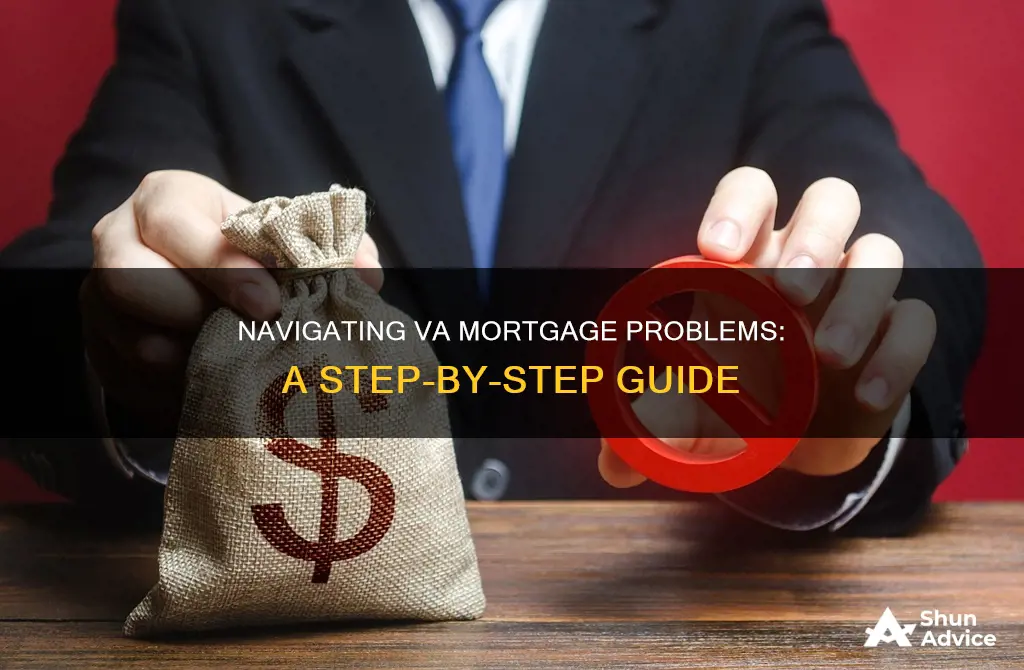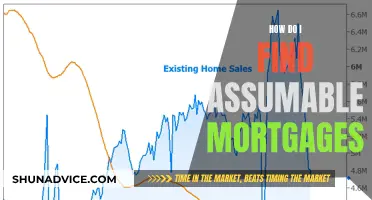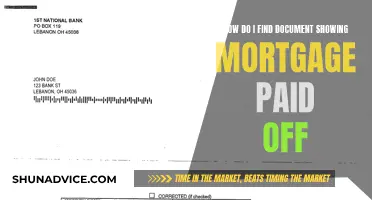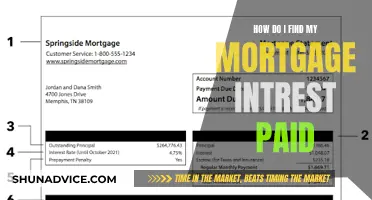
VA home loans are a powerful loan option for veterans, service members, and eligible surviving spouses. They are provided by private lenders and backed by the VA, which guarantees a portion of the loan. VA loans offer competitive interest rates and flexible credit guidelines, and do not require a down payment or mortgage insurance. While VA loans have been the safest loan on the market for most of the last 15 years, some veterans have faced foreclosure due to unethical practices and issues with the VA's COVID mortgage forbearance program. If you are facing foreclosure, there are several options to consider, including a repayment plan, special forbearance, loan modification, and the Veterans Affairs Servicing Purchase (VASP) program. You can contact a VA loan technician for advice and support.
| Characteristics | Values |
|---|---|
| VA loan type | Purchase Loans, Cash Out Refinance Loans, Interest Rate Reduction Refinance Loans (IRRRL), Native American Direct Loans (NADL), Adapted Housing Grants |
| Who is it for? | Veterans, Servicemembers, eligible surviving spouses |
| Down payment | $0 down payment |
| Mortgage insurance | No mortgage insurance required |
| Interest rates | Competitive interest rates, often lower than market rates |
| Credit guidelines | Flexible and forgiving credit guidelines |
| Eligibility requirements | Minimum active-duty service requirement (90 continuous days), character of service requirements, credit score, debt-to-income ratio, etc. |
| Certificate of Eligibility (COE) | Formal document confirming eligibility based on service history and duty status |
| Foreclosure avoidance | Repayment plan, special forbearance, loan modification, Veterans Affairs Servicing Purchase (VASP) program, extra time to arrange a private sale, short sale, deed in lieu of foreclosure |
| Scams | Be cautious of scams and only work with trusted organizations |
What You'll Learn

Avoiding foreclosure
If you're having trouble making payments on your VA loan, it's important to act quickly to avoid foreclosure. Here are some options to consider:
Contact your mortgage servicer: If you're behind on your mortgage payments, get in touch with your mortgage servicer (the company that collects your payments) to discuss your options. They may be able to work with you to find a solution, such as a repayment plan or special forbearance. It's important to be cautious of scams and only work with trusted organizations.
VA loan technicians: The VA provides loan technicians who can help you figure out the best option for your situation. They offer counseling and advice, even if your loan isn't VA-guaranteed. If you have a VA-guaranteed loan, a loan technician will automatically be assigned to review your loan once it's 61 days past due. You can contact them at 877-827-3702.
Loan modification: This option allows you to add missed payments and legal costs to your total loan balance and create a new mortgage payment schedule with your servicer. However, due to rising interest rates, your modified payment amount could increase.
Veterans Affairs Servicing Purchase (VASP) program: Starting May 31, 2024, if you have a VA-guaranteed loan, you may be eligible for the VASP program. Under this program, the VA buys the modified loan from your loan servicer, and you'll get a fixed 2.5% interest rate. However, not everyone will qualify, and your servicer must have tried all other options to help you keep your home first.
Extra time to arrange a private sale: If you need to sell your home, you can delay foreclosure and buy some time to find a buyer.
Short sale: If you owe more than your house is worth, your servicer might agree to a short sale, where they accept the total proceeds from the home sale as full payment of your debt, even if it's less than the full amount owed. However, this option could result in a loss or reduction in your future home loan benefit.
Deed in lieu of foreclosure: This option allows you to avoid the foreclosure process by signing over the deed to your home to your servicer. However, this could also result in a loss or reduction in your future home loan benefit, and if your loan closed before January 1, 1990, you may need to repay the amount to the government.
It's important to carefully consider your options and seek help from trusted sources, such as VA loan technicians, to avoid foreclosure and protect your interests.
Finding Delinquent Mortgagees: Strategies for Locating Late Payments
You may want to see also

VA loan eligibility
VA loans are provided by private lenders, such as banks and mortgage companies, and are available to veterans, service members, and eligible surviving spouses. The VA guarantees a portion of the loan, enabling the lender to provide more favourable terms.
To be eligible for a VA loan, you must meet the minimum service requirements set by the Department of Veterans Affairs (VA) and have a valid Certificate of Eligibility (COE). You can obtain a COE through VA.gov, or by mail. The COE will be issued based on your service history and duty status. For a VA-backed home loan, you must also meet the lender's credit and income loan requirements.
If you are a surviving spouse, you may be eligible for a COE if you are receiving Dependency and Indemnity Compensation. In this case, you must fill out VA Form 26-1817 and obtain a copy of the Veteran's separation paperwork. If you are not receiving Dependency and Indemnity Compensation, you will need to apply via VA Form 21P-534EZ and submit additional documentation, including a copy of your marriage license and the Veteran's death certificate.
If you do not meet the minimum service requirements, you may still be eligible for a VA loan depending on your discharge type. For example, if you were discharged due to a medical condition or a service-connected disability, you may still qualify. It is best to contact a VA lender to discuss your specific situation and determine your eligibility.
Finding Proof of Paid-Off Mortgages
You may want to see also

VA loan types
VA loans are designed to help veterans, service members, and their survivors become homeowners. The VA offers direct loans and VA-backed loans.
VA direct loans are where the VA acts as the mortgage lender, and the borrower works directly with the VA to manage their loan. The Native American Direct Loan (NADL) program is an example of a direct loan. NADL often has better terms than a private lender and helps eligible Native American veterans finance the purchase, construction, or improvement of homes on Federal Trust Land.
VA-backed loans are guaranteed by the VA, meaning the VA promises to repay a portion of the loan to the lender if the borrower defaults. This reduces the risk for the lender, making them more likely to offer better terms. Nearly 90% of VA-backed loans are made with no down payment, and the VA also caps how much lenders can charge for processing the loan. VA-backed loans include the Interest Rate Reduction Refinance Loan (IRRRL) and the Cash-Out Refinance Loan. IRRRL helps reduce monthly payments by offering a lower interest rate on existing VA-backed loans. The Cash-Out Refinance Loan allows borrowers to take cash out of their home equity to pay off debt or fund other needs.
Who Owns Your Mortgage? Trace Your Mortgage Backers
You may want to see also

Native American Direct Loan (NADL) Program
The Native American Direct Loan (NADL) Program is a low-interest, 30-year fixed mortgage program for Native American veterans and veterans married to a Native American. The NADL program helps eligible Native American veterans finance the purchase, construction, or improvement of homes on Federal Trust Land, or reduce the interest rate on an existing VA loan.
To be eligible for the NADL program, you must be a Native American veteran or a non-Native American veteran married to a Native American. Additionally, your tribal organization must participate in the VA direct loan program, and you must have a valid Certificate of Eligibility (COE). You can obtain a COE through VA.gov or by mail.
Before the Department of Veterans Affairs (VA) can consider a NADL application from a veteran living on Federal Trust Land, the VA and the tribe or sovereign body governing the land must enter into a Memorandum of Understanding (MOU). The MOU sets out the rights and responsibilities of both parties with respect to access to the land, default and foreclosure proceedings, and other legal rights and obligations. Your tribe must be federally recognized for this program.
The NADL program offers a reusable benefit, which means you can obtain more than one NADL to buy, build, or improve another residence in the future. You can also refinance a current NADL for a lower interest rate. The current VA interest rate for NADLs starts at 2.5%. You may need to pay the VA funding fee, a one-time fee that helps lower the cost of the loan for taxpayers since the VA home loan program doesn't require down payments or monthly mortgage insurance.
Finding Your Timeshare Mortgage Statement: A Guide
You may want to see also

VA home loan benefits
VA home loans are one of the most powerful mortgage options for veterans, active military, and surviving spouses. The program has helped millions of veterans and service members achieve the dream of homeownership.
One of the biggest benefits of VA loans is that qualified veterans can purchase a home without a down payment. This is a huge advantage, as it allows veterans and service members to buy homes without having to spend years saving for a lump-sum payment. This no-money-down benefit also means that borrowers can finance 100% of the home's value.
Another advantage of VA loans is that they do not require private monthly mortgage insurance. This is typically required by conventional lenders unless the borrower can put down at least 20%. With a VA loan, borrowers can also ask the seller to pay all loan-related closing costs and up to 4% in concessions.
VA loans also offer more flexibility when it comes to fees and closing costs. Some costs and fees must be covered by other parties in the transaction, making homeownership more affordable for qualified buyers. VA loans also have more flexible underwriting guidelines than conventional loans.
Additionally, VA loans do not have penalties for paying off the loan early. This means borrowers can refinance or pay off their loan without incurring extra fees. The VA also has programs in place to assist borrowers with loan modifications, forbearance, and other strategies to avoid foreclosure.
FHA Mortgage Problems: Quick and Easy Solutions
You may want to see also
Frequently asked questions
A VA loan is a government-backed mortgage option available to veterans, service members, and their surviving spouses. They are made by private lenders but guaranteed by the VA.
Contact your mortgage servicer right away to discuss your options. You can also call a VA loan technician at 877-827-3702 to get advice and help with avoiding foreclosure.
Foreclosure is when your mortgage servicer takes your house to cover the money owed on it.
The VASP program allows the VA to offer homeowners loan modifications with interest rates that are lower than the market rates on regular mortgages.
A COE is a formal document that confirms you meet the guidelines for a VA loan. You can obtain one through VA.gov, by mail, or with help from a lender.







